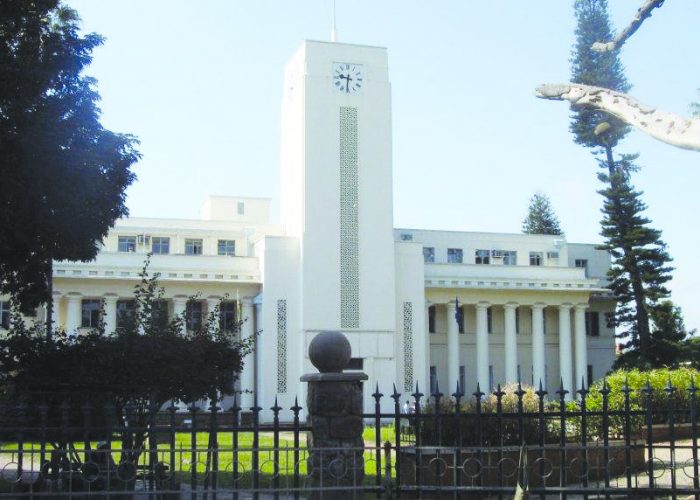


 INCOMING councillors throughout the country face a herculean task ahead as they will be welcomed by empty coffers.
INCOMING councillors throughout the country face a herculean task ahead as they will be welcomed by empty coffers.
When they assume office in the coming weeks, a baptism of fire awaits the newly-elected councillors since nearly all the municipalities are in the red.
A lot of fire-fighting is expected from day one, in terms of servicing financial obligations, including paying workers, while at the same time ensuring that the expectations of residents are met.
While most councils struggled to operate in the black during the hyperinflationary era between 2000 and 2008, the formal adoption of multi-currencies in February 2009 is still to offer them respite.
In fact, a populist directive issued to councils by the government last month has worsened their cash-flows in what could further strain relations between residents and the city fathers.
Ahead of the July 31 polls, councils were ordered to write-off all domestic debts, wiping off a significant portion of their debtors book.
At the stroke of the pen, councils found themselves having to mark down debts owed by residents, amounting to millions of greenbacks.
In order to meet their overheads, city fathers have unleashed their credit control teams to compel corporates and residents who started on a new slate from last month to clear their debts on time, or risk legal action.
Because of the difficult operating environment, most companies and residents are at the risk of losing their assets in the event that the messenger of court has been called to swing into action.
The Harare City Council (HCC) has been the first to fire warning shots at defaulters. This week, the administrators of the capital city threatened to take legal action against those who do not pay their bills from July in order to improve revenue generation.
What has worsened the plight of the municipalities countrywide is that customers who had been religiously honouring their bills immediately stopped paying soon after the government issued the controversial directive, denying councils of the much-needed revenue.
For instance, monthly revenue collection for Bulawayo City Council (BCC) has declined by nearly 65 percent from US$6,9 million to US$2,4 million.
BCC public relations officer, Bongiwe Ngwenya, said council was struggling to buy diesel to fuel its vehicles for basic operations such as garbage collection and attending to burst pipes and sewers.
“If residents do not pay their bills, we will soon face challenges on paying salaries on time, meeting statutory obligations like Value Added Tax and Pay As You Earn to the Zimbabwe Revenue Authority. It might also be difficult to pay service providers like ZESA and we may also start accumulating a salary backlog,” said Ngwenya.
Femias Chakabuda, president of the Urban Councils Association of Zimbabwe, this week said while the newly elected councillors face a difficult task ahead, the delay in swearing them was also infringing on the electorate’s right to representation.
Eric Bloch, an economic analyst, said the debt cancellation had rendered local authorities “insolvent,” thereby diminishing their ability to deliver on their promises.
“They may even be forced to trim their staff because of the inability to pay workers,” said Bloch.
Bloch said councils would need to work closely with government immediately after their inauguration to collect millions of dollars owed by loss-making parastatals.
Councils were owned in excess of US$2 billion by government, residents and corporates, with parastatals being the worst culprits.
Available figures show that Harare was owed over US$400 million by both corporates and residents; Bulawayo (US$100 million), Mutare (US$20 million), Gweru (US$21 million) and Masvingo (US$18 million).
HCC has so far written off debts amounting to US$330 million while Chitungwiza cancelled debts to the tune of US$40 million in line with the directive.
Bulawayo and other cities and towns are in the process of complying with the government order.
This week, Killian Mupingo, the permanent secretary in the Local Government Ministry, said there were in the process of quantifying how much would be written off by councils in what helps expose the fact that government rushed to issue the directive without analysing how it would impact on municipalities.
“That is a big exercise, we don’t know at the moment and we would not want to lie to the nation, we are still quantifying those figures and we would not give estimates,” he said.